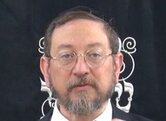
פרשת כי תבוא
אשר תביא מארצך אשר ה׳ אלקיך נותן לך
"That you will bring from your land that Hashem is giving you"
The Parasha starts "And it will be when you come to the land that Hashem is giving you... And you will take from the first of the fruit of the land that Hashem is giving you".
Why mention twice that Hashem is giving us the land?
Rav Dessler teaches that there many levels of Emunah. Some believe that Hashem created the world and let it run naturally. Others maintain that Hashem runs the world through emissaries. Hashem gives us fruit but it comes from the land. The land is the messenger.
Finally, the optimum level of Emunah is to believe that Hashem runs the world in totality. These "emissaries" are only imaginable. It only seems as if the land is baring fruit, but really it is Hashem actively providing us with sustenance.
It is possible that this is what the Torah is teaching us. Not only is Hashem giving us the land. When you take your fruit from the land, remember that it is really "that Hashem is giving to you".
וענית ואמרת לפני ה׳ אלקיך
"And you will answer and say before Hashem your God"
Usually, one answering implies that he is responding to another who spoke first. Here, however, we don't see anyone speaking to the person bringing the Bikkurim.
That being said, why does the Torah write that "you should answer and say"? Who and to what are you answering?
The Gemara in Kiddushin (33a) writes that when working, one may not stand for his Rav or parent. Since he is getting paid for his time, he may not use someone else's time or money. However, continues the Gemara, the people who worked in Yerushalayim were permitted and encouraged to stop work to greet and encourage those who would bring Bikkurim. This would ensure that these people would return again! It is possible that when greeting these people, the workers would ask what the point of their journey was. To these people, "they would answer and say"!
It is also possible that the "answering" that Jews reply when bringing Bikkurim is a response to the blessing that Hashem gave them. The Beracha with which Hashem has blessed Bnei Yisrael is a statement of love and endearment. With gratitude, they "reply" and speak about all the great Hessed Hashem has done for them!
It is also possible that the Torah is hinting to another very important lesson. The Passuk writes that we must answer and say "before Hashem our God". What does this phrase really teach us?
The Mishna in Avot teaches that one should contemplate three things and he will not come to sin. He should think that there is "an eye that sees, an ear that hears and all cations are written in a book". One should realize that Hashem is present and watching everything being done.
It is possible that this is alluded to in our Passuk. The Passuk states, וענית ואמרת לפני ה׳ אלקיך, "And you will answer and say in front of Hashem". When speaking, realize that you are "in front of Hashem"! Doing that will change many of the things we say!
Rabbi Eliezer Zeytouneh is the Rav of Congregation Bnei Shelomo located at 1305 Gravesend Neck Rd. He is also the Principal of Yeshivat Or Hatorah and the Dean of Peninim Sephardic Seminary. His Shiurim are attended by young adults of all backgrounds and can be heard on LearnTorah.com and Kol Halashon.








